Table of Contents
Come join us now, and enjoy playing your beloved music and browse through great scores of every level and styles!
Can’t find the songbook you’re looking for? Please, email us at: sheetmusiclibrarypdf@gmail.com We’d like to help you!
Sorabji: In the Hothouse (from Two Piano Pieces) sheet music, Noten, partitura, spartiti 楽譜

Best Sheet Music download from our Library.
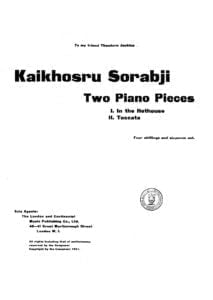
Please, subscribe to our Library.
If you are already a subscriber, please, check our NEW SCORES’ page every month for new sheet music. THANK YOU!
Browse in the Library:
Or browse in the categories menus & download the Library Catalog PDF:
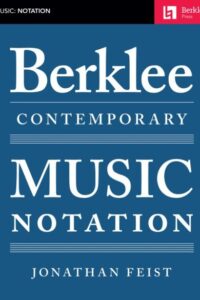
Who was Sorabji?
Kaikhosru Shapurji Sorabji: The Hermit of Modernist Maximalism
In the often-crowded pantheon of 20th-century composers, Kaikhosru Shapurji Sorabji (1892-1988) occupies a unique and enigmatic niche. A composer of staggering ambition, labyrinthine complexity, and self-imposed isolation, Sorabji crafted some of the most monumental, technically demanding, and stylistically idiosyncratic music ever conceived. His work, largely ignored during his lifetime and still challenging audiences today, represents a singular path through modernism – one defined by maximalism, intricate ornamentation, transcendental virtuosity, and a fierce, almost hermetic, independence.
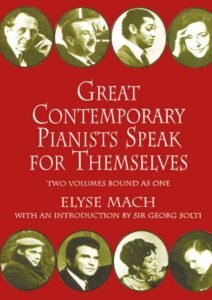
Biography: A Self-Forged Identity
- Birth & Heritage: Born Leon Dudley Sorabji on August 14, 1892, in Chingford, Essex, England. His father was a Parsi engineer from India (thus the Persian-derived name Sorabji), and his mother was English-Spanish. This mixed heritage profoundly shaped his sense of identity, though he felt alienated from both cultures.
- The Name: Around 1914, he legally changed his name to Kaikhosru Shapurji Sorabji. “Kaikhosru” and “Shapurji” were Persian names chosen for their resonance and connection to ancient Persian history and Zoroastrianism, reflecting his deliberate construction of a unique persona.
- Musical Formation: Largely self-taught. He received some piano lessons in his youth but had no formal composition training. His musical education came through voracious listening, score study (especially Bach, Liszt, Busoni, Debussy, Ravel, Scriabin, Szymanowski, Medtner), and wide reading in literature, philosophy, and the occult.
- Early Career & Criticism: Worked as a music critic (under the pseudonym “S. Godfrey”) for outlets like The New Age and The New English Weekly from the 1910s to the 1930s. His critiques were famously acerbic, insightful, and often scathing, particularly targeting English musical provincialism and composers he deemed mediocre (which was most of them).
- The Recluse: Deeply disillusioned by the musical establishment and critical reception to his early performances (which were rare and often controversial), Sorabji gradually withdrew from public musical life starting in the late 1930s. After his mother’s death in 1940, he retreated almost completely to his secluded home “The Eye” in Corfe Castle, Dorset, where he lived with his companion, Reginald Norman Best, until his death. He forbade performances of his music for decades.
- The Ban Lifted: In 1976, pressured by a growing underground interest spearheaded by pianists like Yonty Solomon and Alistair Hinton (who later became his literary executor), Sorabji reluctantly lifted the ban on performances, provided he approved the performer.
- Death: Sorabji died on October 15, 1988, in Winfrith Newburgh, Dorset, leaving behind a colossal legacy of unpublished manuscripts.
Works: Monuments of Sound

Sorabji’s output is vast and overwhelmingly dominated by solo piano music, though he also composed orchestral works, chamber music, organ symphonies, and songs. His works are renowned for their extreme length, density, and technical difficulty, pushing the boundaries of playability.
- Key Masterpieces:
- Opus Clavicembalisticum (1930): His most famous (or infamous) work. A colossal 4+ hour piano epic in 12 movements (including fugues, passacaglias, toccatas, cadenzas), often considered one of the most challenging solo piano works ever written. A summit of contrapuntal complexity and virtuosic display.
- Symphonic Variations for Piano (1935-37): Another monumental work, exploring vast variation forms over an extended duration.
- Sequentia Cyclica super “Dies iræ” ex Missa pro Defunctis (1948-49): A massive cycle of 27 variations on the “Dies Irae” chant, demonstrating his intricate contrapuntal and transformative skills.
- 100 Transcendental Studies (1940-44): True to their name, these studies explore extreme technical and expressive demands far beyond those of Liszt or Chopin.
- Symphonies for Solo Piano: Several exist, including his Symphony No. 2 (“Jāmī”), blending orchestral textures and scope onto the piano.
- Gulistān – Nocturne for Piano (1940): A prime example of his lush, perfumed, and incredibly intricate “Persian”-inspired style.
- Concerti: He wrote several for solo piano and orchestra (e.g., Concerto per suonare da me solo e senza orchestra, per divertirsi), which are symphonic in scale and require superhuman virtuosity.
- Symphonies for Organ: Vast, complex works exploring the sonic possibilities of the instrument.
Analysis of Style: A Universe of Complexity
Sorabji’s style is instantly recognizable yet difficult to categorize. It synthesizes diverse elements into a unique and overwhelming whole:
- Maximalism: This is the defining characteristic. Sorabji embraced extremes:
- Length: Works lasting several hours are common.
- Density: Highly polyphonic textures, often with multiple independent melodic lines woven together in complex counterpoint (influenced by Bach, Busoni).
- Virtuosity: Demands transcendental technique – cascades of notes, complex polyrhythms, wide leaps, immense power, and extreme delicacy. He wrote as if the pianist had four hands.
- Ornamentation: Baroque-like ornamentation (trills, mordents, turns, grace notes) is ubiquitous, often layered and integral to the texture, creating shimmering, kaleidoscopic surfaces (influenced by Scriabin, Szymanowski, Middle Eastern/Persian music).
- Dynamic Range: From barely audible whispers to thunderous, percussive climaxes.
- Harmony: A complex fusion:
- Rooted in late-Romantic chromaticism (Scriabin, Szymanowski, early Schoenberg).
- Freely employed dissonance, clusters, and intricate chord structures.
- Often retained a sense of tonal centers or polarity, even amidst dense chromaticism (unlike strict atonality).
- Incorporated modal inflections, sometimes evoking Persian or Spanish flavors.
- Rhythm: Highly complex and fluid:
- Frequent use of polyrhythms (multiple simultaneous rhythms), cross-rhythms, and nested tuplets (triplets within quintuplets, etc.).
- Tempo often fluctuates wildly, requiring immense control.
- A sense of improvisatory freedom within highly structured forms.
- Form: Often large-scale, complex, and idiosyncratic:
- Favored variations (passacaglias, chaconnes), fugues, toccatas, and intricate multi-movement structures (like the Opus Clavicembalisticum).
- Forms were often expansive and cumulative, building through layered repetition and intensification rather than traditional development.
- Architecture was paramount, even in the densest textures.
- Influences (Assimilated, Not Imitated):
- Ferruccio Busoni: The most profound influence. Busoni’s ideas of “Young Classicism,” the transcendental potential of the piano, the fusion of Bachian counterpoint with modern harmony, and the concept of “Junge Klassizität” resonated deeply. Sorabji dedicated his Opus Clavicembalisticum to Busoni’s memory.
- Franz Liszt: Virtuosity, thematic transformation, large-scale forms, and the symphonic poem concept translated to piano.
- J.S. Bach: Contrapuntal mastery, structural rigor, and the use of forms like fugue and passacaglia.
- Alexander Scriabin: Mysticism, harmonic language, dense textures, and ecstatic climaxes.
- Karol Szymanowski: Sensuous harmony, intricate ornamentation (especially in the “Persian” inspired works like Métopes and Masques), and voluptuous textures.
- Debussy & Ravel: Color, texture, exoticism, and pianistic refinement.
- Mediterranean & Persian Cultures: While not authentically recreating these styles, he evoked their essence through ornamentation, melodic turns, and titles (Gulistān, Jāmī), reflecting his fascination with his Persian heritage and the wider Orient.
- Aesthetic: Sorabji’s music aimed for:
- Transcendence: Pushing beyond perceived limits of instrument, performer, and listener.
- Luxuriance & Opulence: A rich, sensual, almost decadent sound world.
- Intellectual Rigor: Underlying the sensual surface was meticulous structural planning.
- Individualism: A complete rejection of prevailing trends (serialism, neoclassicism, minimalism) in favor of his own uncompromising vision.
Legacy: From Obscurity to Cult Status
Sorabji’s legacy is complex and evolving:
- Decades of Neglect: His self-imposed exile and performance ban meant his music was virtually unknown outside a tiny circle for nearly 40 years. Manuscripts were inaccessible, unplayable, and unpublished.
- The Pioneers (1970s-): The lifting of the ban sparked interest. Pianists like Yonty Solomon, Michael Habermann, Geoffrey Douglas Madge (who made the first complete recording of Opus Clavicembalisticum in 1977), and later Marc-André Hamelin, Jonathan Powell, Fredrik Ullén, and Ronald Stevenson began the monumental task of learning, performing, and recording his works. This required immense dedication and technical prowess.
- Publication & Scholarship: The Sorabji Archive, established by Alistair Hinton (Sorabji’s literary executor), has been crucial in cataloging, editing, and facilitating the publication of scores (primarily by Dover Publications and The Sorabji Music Archive). Scholarly work is gradually increasing.
- Recordings Renaissance: The CD era and digital distribution (YouTube, streaming) have been transformative. Dedicated labels (Altarus, BIS, Toccata Classics, Piano Classics) have released numerous recordings, making this once-inaccessible music available globally. Complete cycles of the 100 Studies and other major works are underway.
- The Cult & The Challenge: Sorabji remains a “composer’s composer” and a cult figure. His music is not mainstream concert fare due to its extreme demands and duration. However, it commands deep respect and fascination among pianists, composers, and listeners drawn to its unique sound world and uncompromising vision. He is seen as the ultimate iconoclast, forging a path utterly independent of 20th-century musical fashions.
- Influence: His direct influence on other composers is hard to pinpoint due to his obscurity, but he stands as a powerful symbol of uncompromising artistic integrity and the exploration of extreme complexity and virtuosity. Composers interested in maximalism, intricate counterpoint, or pushing pianistic limits inevitably encounter his shadow.
- Copyright Controversy: The complex copyright status of his works (involving the Sorabji Archive and publishers) has sometimes been a point of friction within the community of performers and scholars seeking access.
Sorabji: The Solitary Giant
Kaikhosru Shapurji Sorabji was a true original. He inhabited a musical universe entirely of his own making, synthesizing diverse influences into a style characterized by unparalleled complexity, sensuous opulence, and transcendental ambition. His deliberate withdrawal from the world ensured decades of obscurity, but the dedication of pioneering performers and the power of recording technology have brought his extraordinary soundscapes to light. While his music remains challenging and demanding, it offers unparalleled rewards: a journey into a world of labyrinthine beauty, overwhelming power, and intellectual fascination. Sorabji stands as a testament to the power of an utterly individual artistic vision, uncompromising in its scope and ambition, a solitary giant whose monumental creations continue to challenge and inspire. He redefined the possible for the piano and left a legacy that continues to unfold as more performers dare to scale his musical Himalayas.
“In the Hothouse” is one of Sorabji’s most evocative and frequently performed works, serving as a perfect entry point into his dense, sensuous sound world. Here’s a detailed look at this fascinating piece:
Context: Two Piano Pieces (1918)
- Composed: 1918 (early in Sorabji’s career, age 26).
- Publication: First published in 1920, making it one of the earliest Sorabji works available in print.
- The Pair: “In the Hothouse” is paired with “Toccata” – a contrasting, hyper-virtuosic, and structurally complex piece showing his Busoni/Liszt influences. “In the Hothouse” offers the sensual, atmospheric counterpoint.
- Significance: Represents Sorabji’s early mastery of texture, harmony, and evocative atmosphere. It predates his gargantuan works but already displays his unique voice.
“In the Hothouse”: A Sensory Immersion
- Title & Imagery: The title instantly conjures an environment: humid, lush, teeming with exotic, overripe plant life, heavy perfumes, and stifling, enclosed heat. Sorabji translates this sensory overload into sound.
- Form & Structure: Relatively free and rhapsodic. It unfolds as a continuous, organic stream of consciousness rather than adhering to strict classical forms. Think of it as an elaborate, decadent arabesque.
- Style & Character:
- Extreme Sensuality: This is the defining feature. The music drips with lush, complex harmonies and suffocatingly rich textures.
- Harmony: Deeply chromatic, rooted in late Scriabin and early Szymanowski. Expect dense, constantly shifting chords: augmented harmonies, whole-tone inflections, unresolved dissonances creating tension, and sudden moments of surprising consonance like shafts of light piercing foliage. It avoids traditional tonality but gravitates around implied centers.
- Texture: Thick, layered, and constantly in motion. Tremolos, trills, rapid filigree (ornamental passages), and cascading arpeggios create a shimmering, humid haze. Melodies are often embedded within this dense undergrowth rather than standing clearly apart. The writing often requires the pianist to sustain multiple layers simultaneously.
- Rhythm: Fluid and flexible, often obscured by the sheer density of notes and ornamentation. Rubato (expressive tempo fluctuations) is essential. While less overtly complex polyrhythmically than his later works, the rhythmic flow feels organic and improvisatory.
- Dynamics & Articulation: Wide dynamic range, often shifting suddenly between extremes (e.g., thunderous climaxes collapsing into fragile whispers). Articulation varies from sharp staccatos to legatissimo passages that blur together. Pedaling is crucial for sustaining the harmonic haze and creating resonance.
- Ornamentation: Quintessential early Sorabji. Trills, mordents, turns, and grace notes are not mere decoration; they are the texture, creating constant flickering movement and contributing to the claustrophobic, teeming atmosphere. This foreshadows the intricate ornamentation dominating his mature style.
- Emotional Landscape: Evokes opulence, decadence, languor, mystery, stifling heat, hidden dangers, and overwhelming sensory stimulation. There’s a sense of beauty bordering on the grotesque due to its sheer intensity.
Influences Audible in “In the Hothouse”
- Scriabin (Primary): The harmonic language (mystic chords, unresolved dissonance, ecstatic climaxes), the sensual atmosphere, and the use of trills/tremolos are deeply indebted to Scriabin’s late sonatas and poems (e.g., Vers la flamme). Sorabji pushes Scriabin’s decadence further.
- Szymanowski: The opulent textures, perfumed harmonies, and “orientalist” exoticism (though abstracted here) strongly recall Szymanowski’s “Métopes” or “Masques,” which Sorabji admired deeply.
- Debussy: The focus on atmosphere, texture, and harmonic color (whole-tone scales, parallel chords) shows Debussy’s influence, though rendered with far greater density and intensity.
- Ravel: The virtuosic filigree and lush harmonies (think “Gaspard de la Nuit,” especially “Ondine” or “Le gibet”) are a touchstone, again amplified.
- Liszt: The rhapsodic freedom and dramatic gestures hint at Liszt, though filtered through a post-Scriabinesque lens.
Performance Challenges
- Texture & Balance: Maintaining clarity amidst the dense, rapidly shifting textures is paramount. The pianist must carefully voice chords and layers to prevent muddiness while sustaining the essential harmonic haze.
- Ornamentation as Texture: Executing the constant ornamentation smoothly and evenly, integrating it into the melodic and harmonic flow rather than treating it as mere decoration.
- Dynamic Control: Navigating the extreme dynamic contrasts and sudden shifts without sounding jarring. Creating a true pianissimo shimmer within complexity is incredibly difficult.
- Rubato & Phrasing: Applying expressive tempo fluctuations naturally while maintaining the overall structural coherence and forward momentum of the rhapsodic form.
- Pedaling: Using the pedal to create resonance and blend without causing harmonic blurring or loss of rhythmic definition. Requires exceptional sensitivity.
- Stamina & Focus: While shorter than his later works (typically 12-15 minutes), the piece demands intense concentration and physical control to sustain the atmosphere and navigate the technical intricacies.
Legacy & Significance of “In the Hothouse”
- Accessibility: It remains one of Sorabji’s most “accessible” works due to its evocative title, relatively shorter duration, and concentrated expression. It’s a frequent choice for pianists introducing audiences to Sorabji.
- Blueprint: It serves as a crucial blueprint for Sorabji’s mature style, showcasing his core preoccupations: sensuality, harmonic density, intricate ornamentation as texture, and atmospheric evocation, all present in embryonic form.
- Performance History: Despite Sorabji’s later ban, “In the Hothouse” (along with the Toccata) was one of the few pieces occasionally performed during his lifetime (e.g., by Sorabji himself and pianist Reginald Paul) and became a key work for the pioneering generation post-1976 (Yonty Solomon, Michael Habermann, Marc-André Hamelin, Jonathan Powell, Fredrik Ullén).
- Gateway Piece: It functions as a vital “gateway drug” into Sorabji’s world. Its success in conveying its intense atmosphere often encourages listeners to explore his more monumental, complex works.
- Standalone Masterpiece: Regardless of its role as an introduction, it stands as a perfectly formed and powerful piece of early modernist piano writing, a miniature tone poem of extraordinary evocative power.
“In the Hothouse” is a sun-drenched, overripe, and intoxicating immersion into Sorabji’s unique aesthetic. It captures the essence of his sensual maximalism in a concentrated dose, showcasing his debt to Scriabin and Szymanowski while asserting his own distinct voice. Its evocative power, technical brilliance, and relative brevity ensure its enduring place as one of his most beloved and frequently performed works, offering a compelling glimpse into the hothouse of Sorabji’s extraordinary musical imagination.
| Artist or Composer / Score name | Cover | List of Contents |
|---|---|---|
| Hans Zimmer Pirates Of The Caribbean At Worlds End Piano Solo |
 |
Hans Zimmer Pirates Of The Caribbean At Worlds End Piano Solo |
| Hans Zimmer Prince Of Egypt |
 |
Hans Zimmer Prince Of Egypt |
| Hans Zimmer Rush Lost But Won Piano Solo | Hans Zimmer Rush Lost But Won Piano Solo | |
| Hans Zimmer Tennessee from Pearl Harbor | Hans Zimmer Tennessee from Pearl Harbor | |
| Hans Zimmer The Dark Knight (piano sheet music) |
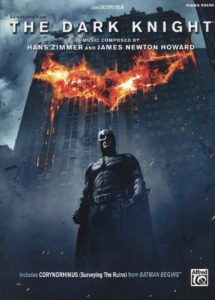 |
Hans Zimmer The Dark Knight |
| Hans Zimmer The Kraken (Piano solo sheet music) |
 |
|
| Hans Zimmer The Lion King This Land | Hans Zimmer The Lion King This Land | |
| Hans Zimmer The Pirates Of The Caribbean On Stranger Tides (Songbook) Piano Solo |
 |
Hans Zimmer The Pirates Of The Caribbean On Stranger Tides (Songbook) Piano Solo |
| Hans Zimmer The Rock (Theme) | Hans Zimmer The Rock | |
| Hans Zimmer Time fron Inception Piano Solo | Hans Zimmer Time fron Inception Piano Solo | |
| Hans-Guenter Heumann – Soft Rock Piano |
 |
Hans-Guenter Heumann – Soft Rock Piano |
| Hans-Gunter Heumann – Die Klavierbibel |
 |
Hans-Gunter-Heumann-Die-Klavierbibel-contents |
| Hans-Gunter Heumann – Klavier Kultbuch (easy piano arrangements) |
 |
Hans-Gunter Heumann – Klavier Kultbuch |
| Hans-Günter Heumann – Late Night Piano – Volume 2 |
 |
Casablanca Bar,Days Of Wine And Roses,Georgia On My Mind,etc. |
| Hans-Günter Heumann – Late Night Piano Vol. 1 (Easy) |
 |
Late Night Piano 1 |
| Hans-Gunter Heumann – 50s Hits Easy Piano Solos Piano Vocal Chords |
 |
Hans-Gunter Heumann – Easy Piano Solos 50s Hits |
| Hans-Gunter Heumann – 60s Hits Easy Piano Solos Piano Vocal Chords |
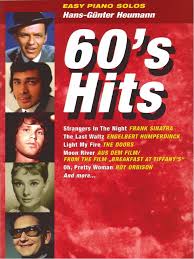 |
Hans-Gunter Heumann – 60s Hits Easy Piano Solos Piano Vocal Chords |
| Hans-Gunter Heumann – 70s Hits Easy Piano Solos Piano Vocal Chords |
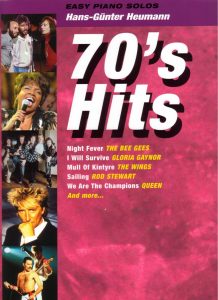 |
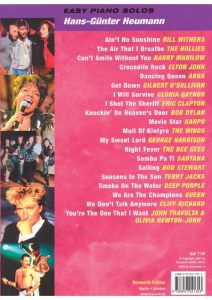 |
| Hans-Günter Heumann Dreamworld 20 Easy Romantic Piano Pieces 20 leichte romantische klavierstücke |
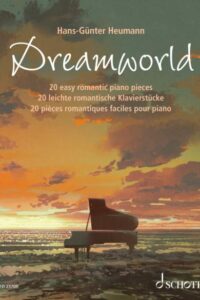 |
Hans-Günter Heumann Dreamworld 20 Easy Romantic Piano Pieces 20 leichte romantische klavierstücke |
| Hans-Günter Heumann Fantasy Piano 20 Enchanting Easy Piano Pieces |
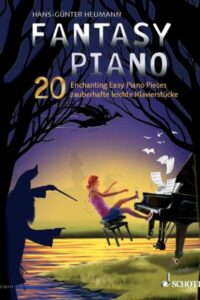 |
Hans-Günter Heumann Fantasy Piano 20 Enchanting Easy Piano Pieces |
| Hans-Günter Heumann Galaxy Piano 20 Galactic Easy Piano Pieces |
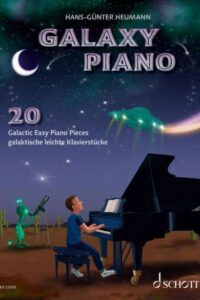 |
Hans-Günter Heumann Galaxy Piano 20 Galactic Easy Piano Pieces |
| Hans-Günter Heumann Hits For Kids |
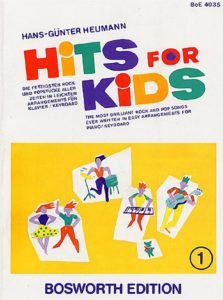 |
Hans-Günter Heumann Hits For Kids |
| Hans-Günter Heumann Mystery Piano 20 Mysterious Easy Piano Pieces |
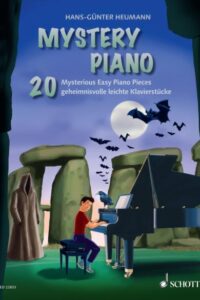 |
Hans-Günter Heumann Mystery Piano 20 Mysterious Easy Piano Pieces |
| Hans-Gunter Heumann Romantic Pop Piano Vol. 1 to 14 (Complete) Easy Piano |
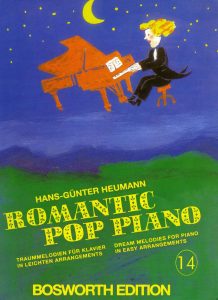 |
Romantic Pop Piano sheet music 10 — Romantic Pop Piano sheet music 1 to 6 — Romantic Pop Piano sheet music 5 |
| Hans-Günter Heumann The Classical Piano Method Christmas Collection |
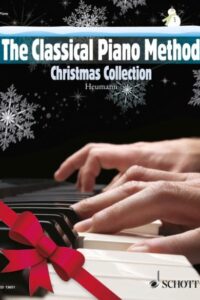 |
Hans-Günter Heumann The Classical Piano Method Christmas Collection |
| Hans-Günter Heumann Winter Dreams 20 Easy Romantic Piano Pieces |
 |
Hans-Günter Heumann Winter Dreams 20 Easy Romantic Piano Pieces |
| Happy Birthday | ||
| Happy birthday Blues Piano Solo arr. sheet music | Happy birthday Blues Piano Solo arr. sheet music | |
| Happy Birthday to you Jazz (lead sheet) | Happy Birthday Jazz | |
| Happy Birthday To You Piano Vocal Guitar |
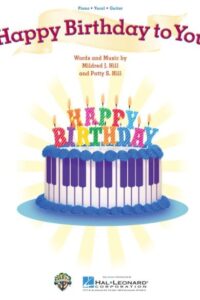 |
|
| Happy Holiday (Musescore File).mscz | ||
| Happy Xmas (War is Over) – John and Yoko Plastic Ono Band (Piano solo) | Happy Xmas (War is Over) – John and Yoko Plastic Ono Band (Piano solo) | |
| Happy Xmas (War Is Over) – John And Yoko Plastic Ono Band (Piano Solo) (Musescore File).mscz | ||
| Harald Saeverud Rondo Amoroso |
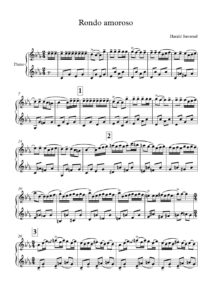 |
|
| Hard Bop Jazz Piano Solos Series Volume 6 |
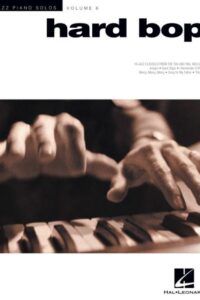 |
Hard Bop Jazz Piano Solos Series Volume 6 |
| Hard Rock Guitar Bible with Tablature |
 |
HARD ROCK GUITAR BIBLE |
| Harmonic Exercises For Jazz Piano Short Version Stanislav Borisov |
 |
|
| Harmony and Ear Training by William Alfred White (1907-1911) Vintage Book |
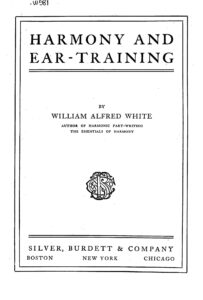 |
|
| Harmony And Theory Essential Concepts Series by Keith Wyatt and Carl Schoeder |
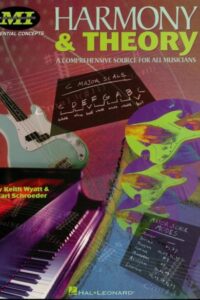 |
Harmony And Theory Essential Concepts Series by Keith Wyatt and Carl Schoeder |
| Harmony and Theory Essential Concepts Series Carl Schroeder Keith Wyatt |
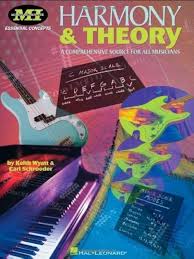 |
|
| Harmony And Voice Leading Workbook |
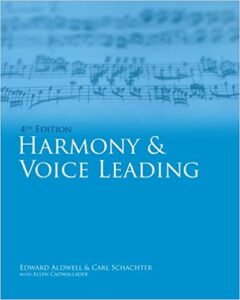 |
Harmony And Voice Leading Workbook by Aldwella and Schachter Ed. III |
| Harmony In Chopin David Damschroder (Book) |
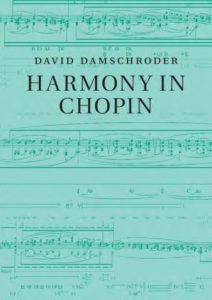 |
|
| Harmony Theory [A Comprehensive Source For All Musicians] (Carl Schroeder, Keith Wyatt) Sheet Music |
 |
Harmony Theory [A Comprehensive Source For All Musicians] (Carl Schroeder, Keith Wyatt) Sheet Music |
| Harmony Theory Part 1 Diatonic by George Heussenstamm |
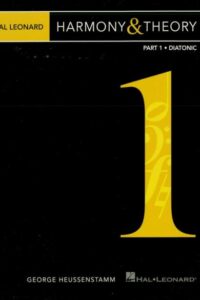 |
|
| Harmony Theory Part 2 Chromatic George Heussenstamm |
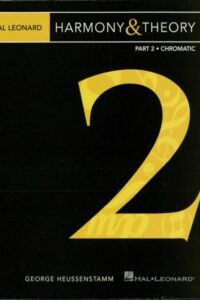 |
|
| Harold Arlen – Let’s Fall In Love |
 |
|
| Harold Darke – In The Bleak Midwinter for Vocal choir and keyboard |
 |
|
| Harold Lobo & Tristeza (samba) | Harold lobo Tristeza samba | |
| Harry Connick Jr. – Avalon (piano) | Harry Connick Jr. – Avalon (piano) | |
| Harry Connick Jr. – from When Harry met Sally film (piano) | Harry Connick Jr. – from When Harry met Sally film (piano) | |
| Harry Escott – Unravelling |
 |
|
| Harry Gregson-Williams – Destiny (Piano solo sheet music) Price of Persia Game | Harry Gregson-Williams – Destiny (Piano solo sheet music) | |
| Harry in Winter (Patrick Doyle) | ||
| Harry Nilsson Everybody’s Talkin’ Sheet Music | Harry Nilsson Everybody’s Talkin’ Sheet Music | |
| Harry Nilsson The Nilsson Best Of 21 Songs Piano Vocal Chords |
 |
Harry Nilsson The Nilsson Best Of 21 Songs Piano Vocal Chords |
| Harry Potter And The Chamber Of Secrets Songbook (piano solos) John Williams |
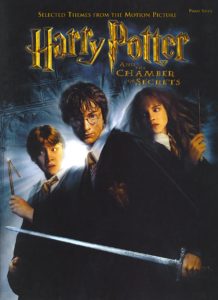 |
Harry Potter And The Chamber Of Secrets Songbook |
| Harry Potter And The Deathly Hallows Part I |
 |
Harry Potter And The Deathly Hallows Part I |
| Harry Potter And The Deathly Hallows Part II |
 |
Harry Potter And The Deathly Hallows Part II |
| Harry Potter and the Order of Phoenix sheet music book |
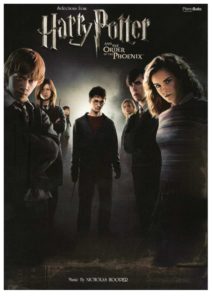 |
Harry Potter and the Order of Phoenix sheet music book |
| Harry Potter And The Prisoner Of Azkaban – Buckbeaks Flight – John Williams | ||
| Harry Potter And The Prisoner Of Azkaban songbook |
 |
Harry Potter And The Prisoner Of Azkaban songbook |
| Harry Potter and the Sorcerer’s Stone Songbook |
 |
Harry Potter and the Sorcerer’s Stone Songbook |
| Harry Potter And The Sorcerers Stone – Hedwigs Theme – John Williams | ||
| Harry Potter And The Sorcerers Stone – Main Theme – John Williams | ||
| Harry Potter Musical A very Potter Musical Piano Vocal songbook by Darren Criss and Al Holmes arr. Josh Tsai |
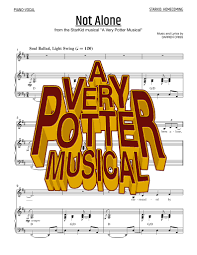 |
Harry Potter Musical A very Potter Musical Piano Vocal songbook by Darren Criss and Al Holmes arr. Josh Tsai |
| HARRY POTTER songbook Half-Blood Prince |
 |
HARRY POTTER songbook Half-Blood Prince |
| Harry Potter The Goblet of Fire Selections by Patrick Doyle Piano Vocal guitar Chords |
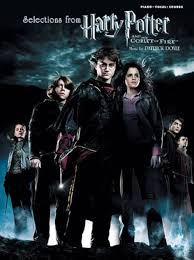 |
Harry Potter The Goblet of Fire Selections by Patrick Doyle Piano Vocal guitar Chords |
| Harry Styles – Cinema Sheet Music |
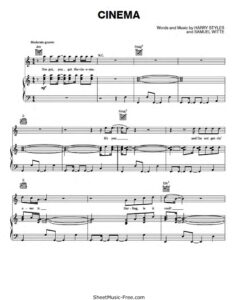 |
|
| Harry Styles – Falling Piano Solo |
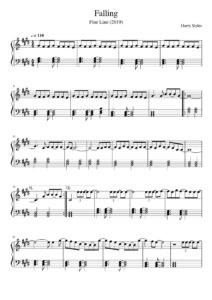 |
|
| Harry Styles Harrys House Piano Vocal Guitar Chords |
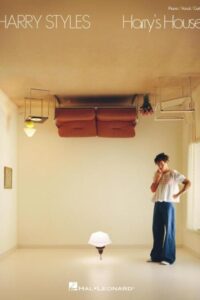 |
Harry Styles Harrys House Piano Vocal Guitar Chords |
| Harry Warren – An Affair To Remember | ||
| Harvard Dictionary Of Music – Willi Apel | Harvard Dictionary Of Music | |
| Have Yourself A Merry Little Christmas. Arranged for solo piano and guitar chords | Have-Yourself-A-Merry-Little-Christmas 1st page | |
| Hay Amores – Love in the Time of Cholera OST (Shakira) | ||
| Hayao Miyazaki & Studio Ghibli Best album (Nausica, Totoro, etc.)Easy Piano |
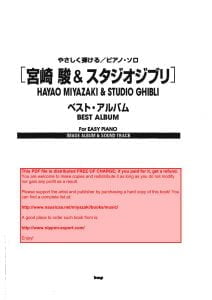 |
 |
| Haydn – Requiem (Piano solo) | Haydn – Requiem (Piano solo) | |
| Haydn Piano Sonatas Vol 1 Urtext | Haydn Piano Sonatas Vol 1 | |
| Haydn Piano Sonatas Vol 2 Urtext |
 |
|
| Haydn Piano Sonatas Vol 3 Urtext |
 |
|
| He’d have to get under-get out and get under by Bobby Norths |
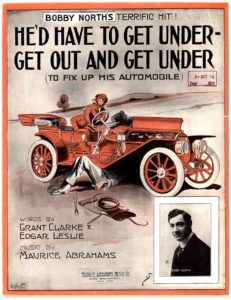 |
|
| Heal the world (Michael Jackson) | ||
| Hearing And Writing Music – Ron Gorow Ear Training |
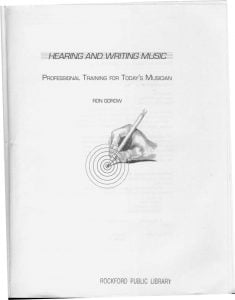 |
|
| Hearing The Movies Music And Sound In Film History (Book) |
 |
Hearing The Movies Music And Sound In Film History |
| Heart Guitar Anthology Guitar Tab |
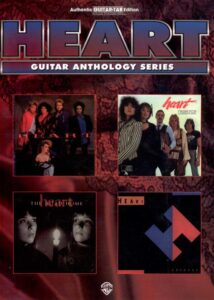 |
Heart Guitar Anthology Guitar Tab |
| Heavy Metal Lead Guitar Vol. 1 and 2 – (Guitar Book + MP3 audio play long) – Troy Stetina with Tablature | (Guitar – METHOD) Troy Stetina – Heavy Metal Lead Guitar, Volume I | Heavy Metal Lead Guitar Vol. 2 – (Guitar Book + MP3 audio play long) – Troy Stetina |
| Heavy Metal Music Book 1 Fake Book |
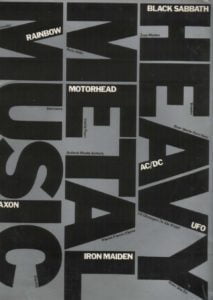 |
Heavy Metal Music Book 1 Fake Book |
| Hector Ayala Serie Americana Guitar Guitarra (7 pieces) Brasil – Bolivia – Paraguay – Chile – Peru – Argentina |
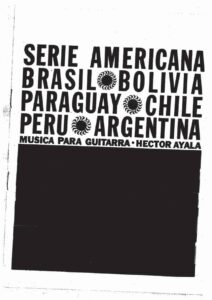 |
Hector Ayala Serie Americana Guitar Guitarra Brasil – Bolivia – Paraguay – Chile – Peru – Argentina |
| Heitor Villa-Lobos An Arrangement of Bachianas Brasileiras No. 1 (analysis) |
 |
|
| Heller – 25 Melodious Studies, op 45 |
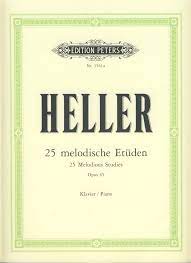 |
Heller – 25 Melodious studies op 45 |
| Heller – 25 Studies, op 47 | Heller studies op 47 | |
| Heller – 30 Progressive Studies Op.46 | Heller – 30 Progressive Studies Op.46 | |
| Heller – 50 Selected Studies |
 |
Heller – 50 Selected Studies |
| Heller – Étude Progressive Opus 46 No. 11 In B Minor (Sheet Music Noten) (Musescore File).mscz | ||
| Hellewell, David All That Jazz Op. 78 (Piano Solo) | Hellewell, David All That Jazz Op. 78 (Piano Solo) | |
| Hello (Evanescence) | ||
| Helmut Lotti – Ciribiribin | ||
| Help Me Faith – From Far Cry 5 (Musescore File).mscz | ||
| Help Your Kids with Music A Unique Step-by-Step Visual Guide sheet music |
 |
Help Your Kids with Music |
| Henrik Lindstrand Flora |
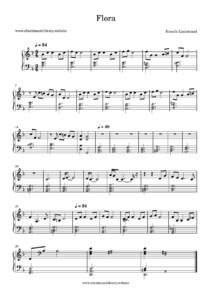 |
|
| Henrik Lindstrand Havet |
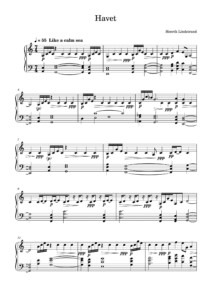 |
|
| Henrik Lindstrand Vaggvisa |
 |
|
| Henry Betti André Hornez – C’est Si Bon (Guitar Arr.) (Musescore File).mscz | ||
| Henry Betti André Hornez – C’Est Si Bon (Guitar arr.) TABS |
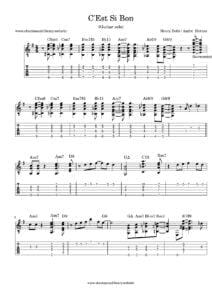 |
|
| Henry Butler The Entertainer by Scott Joplin | Henry Butler The Entertainer by Scott Joplin | |
| Henry Lodge The Temptation Rag | Henry Lodge The Temptation Rag | |
| Henry Mancini Greatest Hits |
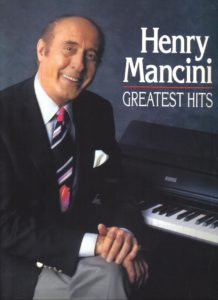 |
Henry Mancini Greatest Hits |
| Henry Mancini – Days Of Wine And Rose Jazz Standard (Guitar arr. sheet music with TABs) | Henry Mancini – Days Of Wine And Rose Jazz Standard (Guitar arr. sheet music with TABs) | |
| Henry Mancini – A Summer Place (Scandalo Al Sole) | Henry Mancini – A Summer Place(Scandalo Al Sole Soundtrack) | |
| Henry Mancini – Baby Elephant Walk (from the film Hatari) | Henry Mancini – Baby Elephant Walk (from the film Hatari) | |
| Henry Mancini – Blues Brothers – Peter Gunn Sheet Music | Henry Mancini – Blues Brothers – Peter Gunn Sheet Music | |
| Henry Mancini – Charade (piano and vocal) | Henry Mancini – Charade (piano and vocal) | |
| Henry Mancini – Moon River (Arr By George N Terry) | Moon River | |
| Henry Mancini – Pink guitar with MP3 audio tracks play along |
 |
Henry Mancini – Pink guitar sheet music |
| Henry Mancini – Songbook |
 |
Mancini, Henry – Songbook |
| Henry Mancini – The Days of Wine and Roses (Jazz standard piano solo) | Henry Mancini – The Days of Wine and Roses (Jazz standard piano solo) | |
| Henry Mancini – The Pink Panther La panthere rose (Sheet Music) |
 |
|
| Henry Mancini – The Pink Panther Theme | ||
| Henry Mancini – The Pink Panther Theme – Easy Piano Solo | Mancini – The Pink Panther Theme – Easy Piano Solo | |
| Henry Mancini – The Pink Panther theme for guitar |
 |
|
| Henry Mancini – The Pink Panther Theme For Guitar (Musescore File).mscz | ||
| Henry Mancini Collection Piano Vocal guitar |
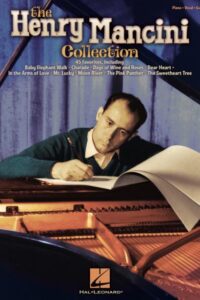 |
Henry Mancini Collection Piano Vocal guitar |
| Henry Mancini Jazz Piano Solos Series Volume 38 (Henry Mancini) |
 |
Henry Mancini Jazz Piano Solos Series Volume 38 (Henry Mancini) |
| Henry Mancini Magic Arr Phillip Keveren The Phillip Keveren Series Piano Solo |
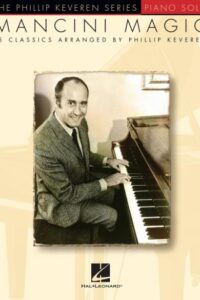 |
Henry Mancini Magic Arr Phillip Keveren The Phillip Keveren Series Piano Solo |
| Henry Mancini Moon River Piano Solo | Moon River | |
| Henry Mancini Moon River Piano Solo Guitar chords |
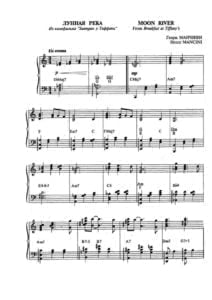 |
|
| Henry Mancini Moon River (arr. for Violin and Piano sheet music) |
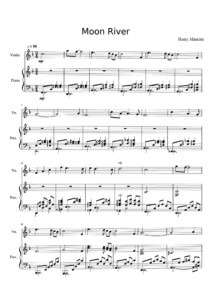 |
|
| Henry Mancini Moon River Easy Piano Solo | Henry Mancini Moon River Easy Piano Solo | |
| Henry Mancini Moon River Piano Solo (Words by Johnny Mercer) |
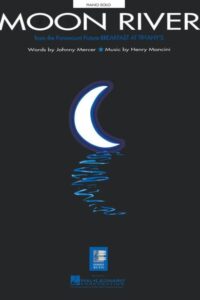 |
|
| Henry Mancini Piano Solos |
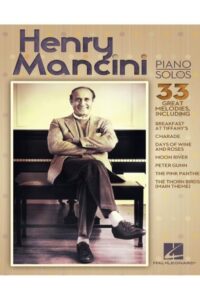 |
Henry Mancini Piano Solos |
| Henry Mancini Sunflower Guitar arr. | Henry Mancini Sunflower Guitar arr. | |
| Henry Mancini The Pink Panther (full version) |
 |
The Pink Panther |
| Henry Mancini The Pink Panther Solo Guitar Arrangement by Lucas Brar with TABs | Henry Mancini The Pink Panther Solo Guitar Arrangement by Lucas Brar with TABs | |
| Henry Mancini…. Reinventing- Film Music by John Caps (Book) |
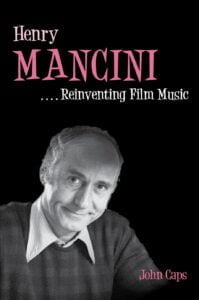 |
|
| Herb Ellis Jazz Guitar Method All The Shapes You Are with Tablature |
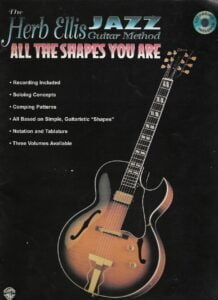 |
|
| Herb Ellis Jazz Guitar Swing Blues with TABs and Audio MP3 tracks to play along |
 |
Herb Ellis Jazz Guitar Swing Blues with TABs and audio mp3 tracks to play along |
| Herb Ellis Rhythm Shapes Guitar Method (with TABs) |
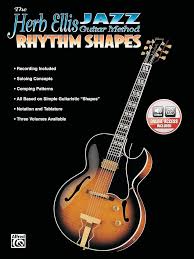 |
Herb Ellis Rhythm Shapes Guitar Method (with TABs) |
| Herbie Hancock Cantaloupe Island |
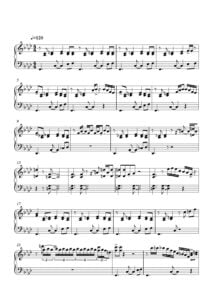 |
|
| Herbie Hancock – All Of You (Miles Davis) |
 |
|
| Herbie Hancock – Classic Jazz Composition & Piano Solos | Herbie Hancock | |
| Herbie Hancock – Jazz Piano Collection |
 |
Herbie Hancock – Jazz Piano Collection |
| Herbie Hancock – Jessica |
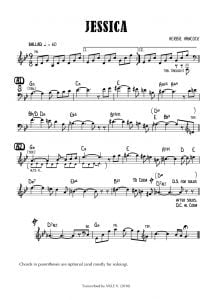 |
|
| Herbie Hancock – Stella by Starlight – Solo | Herbie Hancock – Stella by Starlight – Solo | |
| Herbie Hancock Butterfly Transcription |
 |
|
| Herbie Hancock Collection |
 |
Herbie Hancock Collection |
| Herbie Hancock Complete Scores And Transcriptions |
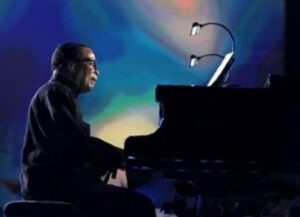 |
|
| Herbie Hancock Driftin sheet music transcription |
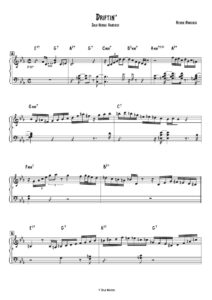 |
|
| Herbie Hancock Freedom Jazz Dance (Solo transcription) | Herbie Hancock Freedom-Jazz-Dance-Solo | |
| Herbie Hancock Greatest Hits transcriptions |
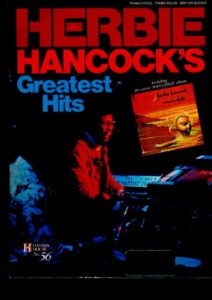 |
Herbie Hancock Greatest Hits transcriptions contents — Herbie Hancock Greatest Hits transcriptions |
| Herbie Hancock Immortal Jazz |
 |
Herbie Hancock Immortal Jazz |
| Herbie Hancock Keyboard Player |
 |
Herbie Hancock Keyboard Player |
